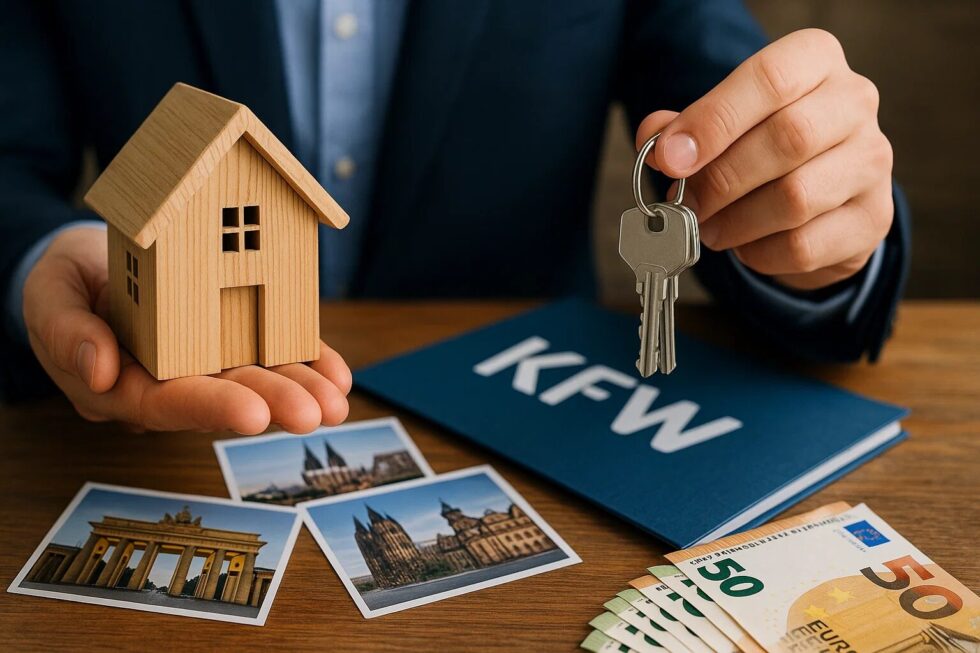What is the easiest way to get a KfW loan in Germany with low interest and state support

KfW loan programs in Germany are among the most attractive financing options for individuals, entrepreneurs, and homeowners in 2025, offering low interest rates and partial support from state-backed initiatives. KfW (Kreditanstalt für Wiederaufbau) operates as a government-owned development bank, providing loans for housing, energy efficiency, education, and business investment. These loans often come with reduced interest rates, repayment-free starting periods, and access to subsidies, making them highly competitive compared to standard bank loans. The eligibility process is transparent but requires correct preparation of documents and compliance with program requirements. In 2025, several KfW programs have been updated with improved conditions, especially for energy renovation and business startups. Understanding how to apply, what requirements to meet, and which program to choose can significantly increase approval chances — about this reports G.business.
Understanding KfW loans in Germany
KfW loans are not granted directly to applicants but through partner banks and financial institutions. This means you apply via your regular bank, which then processes the application with KfW. The main advantage is that the German state partially refinances these loans, lowering the interest rate to as low as 1.25% in some programs for 2025. Popular categories include housing renovation (KfW 261/262), energy-efficient new buildings (KfW 297/298), and business startup financing (KfW StartGeld).
Key benefits include:
- Fixed low interest rates
- Grace periods of up to 5 years before repayment starts
- Subsidies for meeting energy efficiency standards
- Flexible loan amounts depending on project scope
Who can apply for a KfW loan
Any resident in Germany with a valid residence permit and a project that fits the KfW program’s purpose can apply. This includes private individuals, freelancers, SMEs, and municipalities. For private purposes, most applicants use KfW loans for real estate purchase, modernization, or switching to renewable energy systems. Entrepreneurs often apply for startup capital or digital transformation projects.
Common eligibility criteria:
- Creditworthiness according to German banking standards
- A clear project plan with cost estimates
- Compliance with environmental and efficiency regulations (for energy programs)
- Residence or registered business in Germany
Step-by-step application process
The application process for KfW loans in 2025 remains structured and requires precise documentation. Applicants should start with a detailed consultation at their bank to choose the correct program. After selecting a product, the bank forwards the application to KfW for approval.
Typical steps:
- Identify the suitable KfW program.
- Collect all necessary documents (project plan, cost estimates, identification, residence permit).
- Submit the application via your house bank.
- Wait for KfW approval (usually 2–4 weeks).
- Receive funds and start the project.
Popular KfW programs in 2025

Before applying, it is important to compare available programs, as they vary in purpose, interest rate, and subsidy levels.
| Program Name & Number | Purpose | Interest Rate (from) | Max Loan Amount | Extra Support |
|---|---|---|---|---|
| KfW 261/262 | Energy-efficient renovation | 1.25% | €150,000 | Up to 20% subsidy |
| KfW 297/298 | New energy-efficient building | 1.35% | €150,000 | Bonus for renewable heating |
| KfW StartGeld | Startup financing | 2.15% | €125,000 | State guarantee up to 80% |
| KfW 124 | Home ownership purchase | 1.40% | €100,000 | No repayment for first 3 years |
Tips for securing approval
Because KfW loans are in high demand, a well-prepared application increases approval chances. Applicants should ensure that their project meets the exact program criteria, provide clear financial planning, and, if needed, use a certified energy consultant for energy-related programs.
Best practices:
- Start application early, before signing contracts
- Prepare all documentation in German
- Keep credit history clean before applying
- Use official KfW online calculators to check eligibility
Combining KfW loans with other funding
One of the advantages in Germany is that KfW financing can be combined with other state or regional subsidies, such as BAFA (Bundesamt für Wirtschaft und Ausfuhrkontrolle) grants for renewable energy. In many cases, combining programs can reduce the repayment amount significantly. However, applicants must verify compatibility between subsidies, as double funding for the same cost item is not allowed.
Stay connected for news that works — timely, factual, and free from opinion — and insights that matter now: Why the rise in inflation and bank lending rates threatens the survival of SMEs across Germany